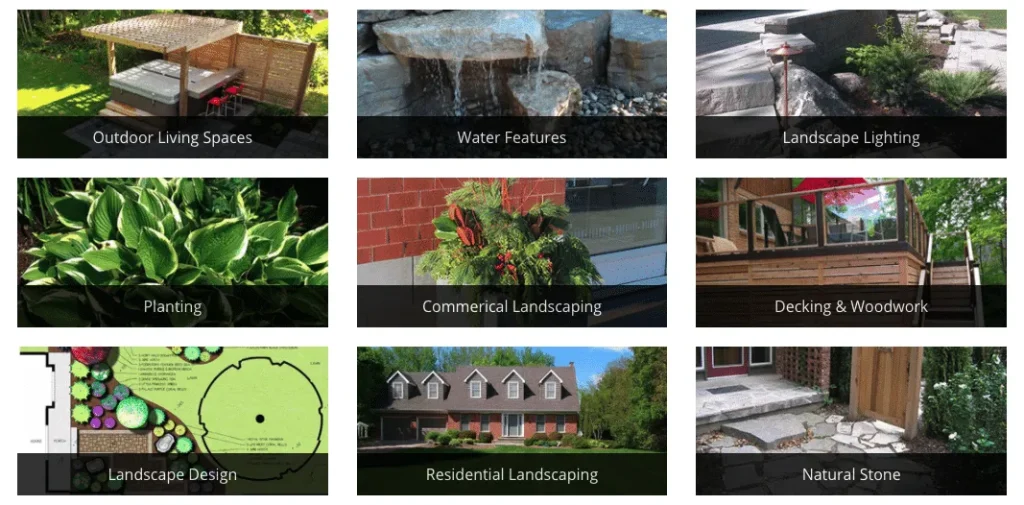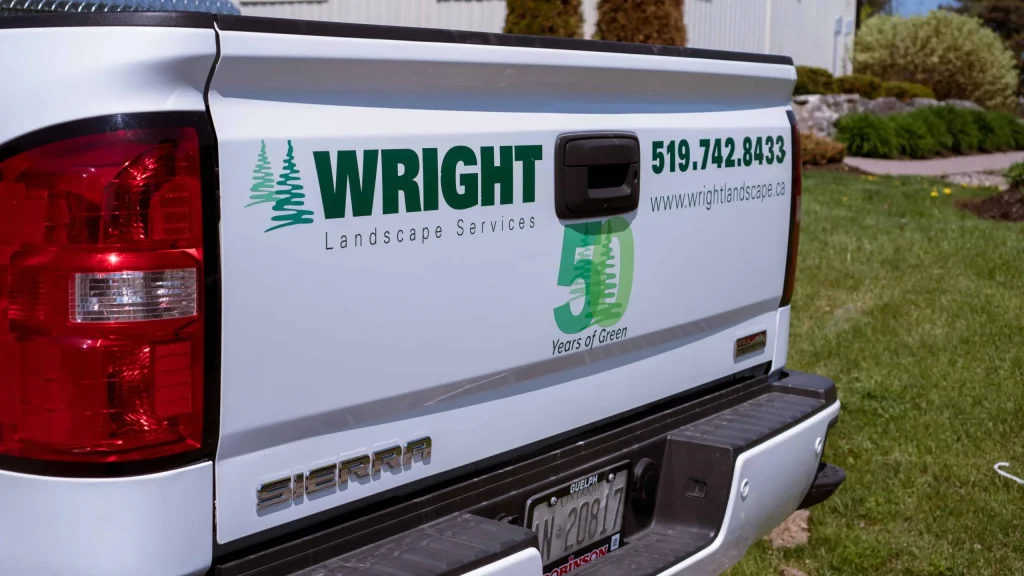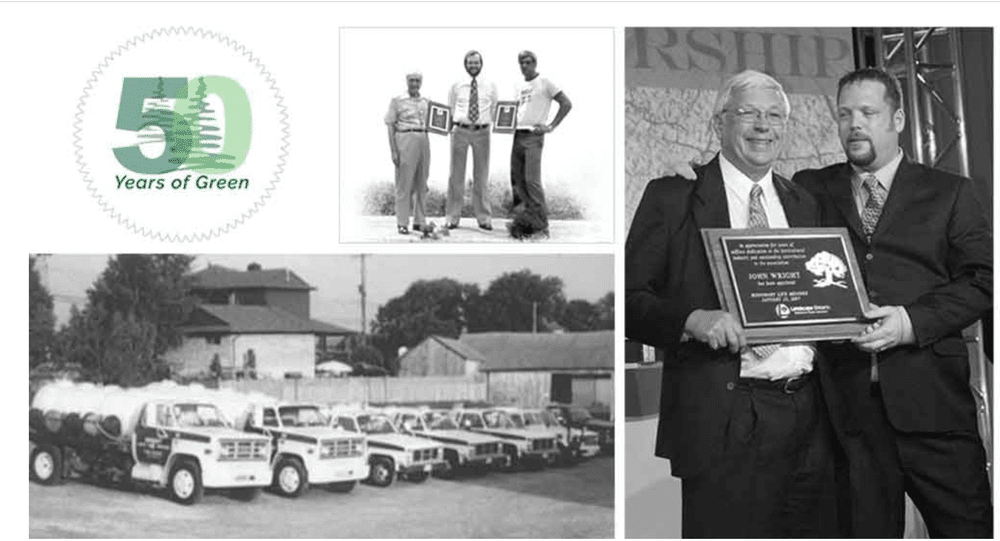At LMN, we pride ourselves on providing each of our 85,000 B2B business management software users with a solution to run a more efficient and profitable landscape business. But now and then, we like to shift the focus off of us and onto our incredible customers, such as Wright Landscape Services.
The LMN marketing crew recently caught up with the owner of Wright Landscape Services, Dave Wright, to learn more about his path to success. Wright sheds some light on the lessons he’s learned as a landscape business owner, as well as the types of consolidations he believes the industry still needs to make. Over the last ten years, his company’s success has been attributed to operational flexibility and the efficient budgeting and tracking offered by LMN and its suite of B2B software.
“By implementing LMN, we were able to tie our budget to our estimates and track time with fewer inputs. I have always been into budgeting, but I struggled with changing the budget as things changed during the year. LMN allows us to build a new budget mid-stream and pivot quickly.”
Q+A with Wright Landscape Services
Tell us a little about Wright Landscape Services, the scope of work you focus on, and how that’s evolved over the years?
A: Our focus is part of our tagline: Design. Build. Maintain. Grow. We offer design-build services, ground maintenance, and snow clearing to residential and commercial clients looking for an exceptional product. The company was started in 1967 by John Wright. He retired in 2006 as a weed and fertilizer company and has evolved into one of the largest and oldest landscape companies in the Waterloo Region.

As the company has grown over the years, what have been some of the biggest roadblocks to overcome, and how have you overcome them in particular?
A: In my last 18 years running the company, I was probably the biggest roadblock. We broke through plateaus each time I could change my thinking or let go of something I was doing. As VP of Operations in my early years, when I gave up operations and focused on sales, we jumped forward. When I took sales training, I was able to sell more in less time at higher prices. When I brought on a younger Operations Manager with lots of energy, we jumped forward faster.
Our latest roadblock is cash flow. As we grow, we need capital, and with a lean year, growth has put us in a bit of a crunch. Stepping back and talking over strategies with my management team and some trusted advisors have given me insight and direction for some next steps to push us forward.
As the owner, how have you managed to juggle all the business functions that make your organization successful?
A: Certainly, the easiest way to manage the juggle is to hand some of the balls off to others. I learned early on that I am not an expert on everything. I look for people who are better at things than I am. My goal is to build a team that can run the company without me. My operations team is mostly there. My next step is building our sales team.
What has been the most significant business advantage to implementing LMN, and why?
A: By implementing LMN, we could tie our budget to our estimates and track time with fewer inputs. I have always been into budgeting, but I struggled with changing the budget as things changed during the year. LMN allows us to build a new budget mid-stream and pivot quickly. We looked at and used other management/estimating software in the past, but there was always some complicated element. I believe in keeping things simple, and that is why we chose to switch to LMN when we did.
Where does Wright Landscape Services see themselves ten years from now, and are there any major growth plans in place, or is the company happy where it is?
A: I have been involved in Jeffrey Scott’s peer groups since 2009, and in a meeting we had last July, he challenged the group by asking the owners that were over 40 what their exit strategy was. He asked, “What do you see yourself doing in 10 years?” I took over the company from my father when he was in his mid 60’s, and it was not an easy transition.
I vowed, at the time, to not be forced to exit the way he did. I gave it some thought and came up with my vision for 2030. My goal is to be still working in the company, but not being the main shareholder. I plan to be working for an ownership group that is made up of employees.
We will be a 63-year-old company called the go-to company to design, build, and maintain exceptional landscapes in the Waterloo Region. I could see us doing $10 million in revenue with a solid niche in residential and commercial services.
How have you managed to attract and recruit employees over the years? Are there any tricks of the trade you can share for other companies with a smaller labor pool to draw upon when hiring?
A: We have tried everything. Anyone who is any good is already working. They just may not be happy working where they are. Building a strong culture creates a destination company that will attract employees on its own. It sounds easy, but culture can shift pretty quickly. We have to stay on the pulse at all times. Once the culture is there, you have to ask everyone to see if they know anyone unhappy working. If they are unhappy, they should give us a call and talk about opportunities. We can’t guarantee that they will be happy working for us, but we can help them change in a new direction.

How has Wright Landscape Services gotten more efficient over the years, or have you unlocked any secrets to becoming more profitable that you can share with other aspiring landscape companies?
A: Efficiency is an ongoing challenge. As we grow in new directions, we constantly have to assess what we are doing and look at new ways to do it more efficiently. We use more equipment and keep our crew small at 2-3 guys, but we have struggled to manage and support the crews on the field. Having good field supervisors that can gently push crews to get work done on time and under budget is key to being more profitable. We are still working on it.
One piece of advice for aspiring landscape companies?
A: Know your numbers and price accordingly.
What are the emerging industry trends that companies need to plan for and begin thinking about now, to be better prepared for in the future?
A: I see that our industry’s fragmentation is pushing prices down, and the lack of labor resources is putting a strain on every company out there. There will always be startups. I don’t want to knock anyone who takes the leap and starts their own thing, but there needs to be a commitment to building something bigger and better and not just working for a wage.
The landscape industry is ripe for consolidation. I think as the labour crunch gets worse, and liability insurance is harder to get for the snow season, the very small companies will fizzle, the small will become medium-sized and the medium-sized will merge to form large full-service companies. Owners need to build sellable companies that make a profit and can run without them.
Navigating the green industry as a landscape business owner requires boldness and humility. Being able to recognize that you can’t do everything is a common obstacle that entrepreneurs face. Fortunately, LMN offers a suite of B2B landscape business software that allows its users to manage their businesses without obstacles better. Try LMN Free today.




